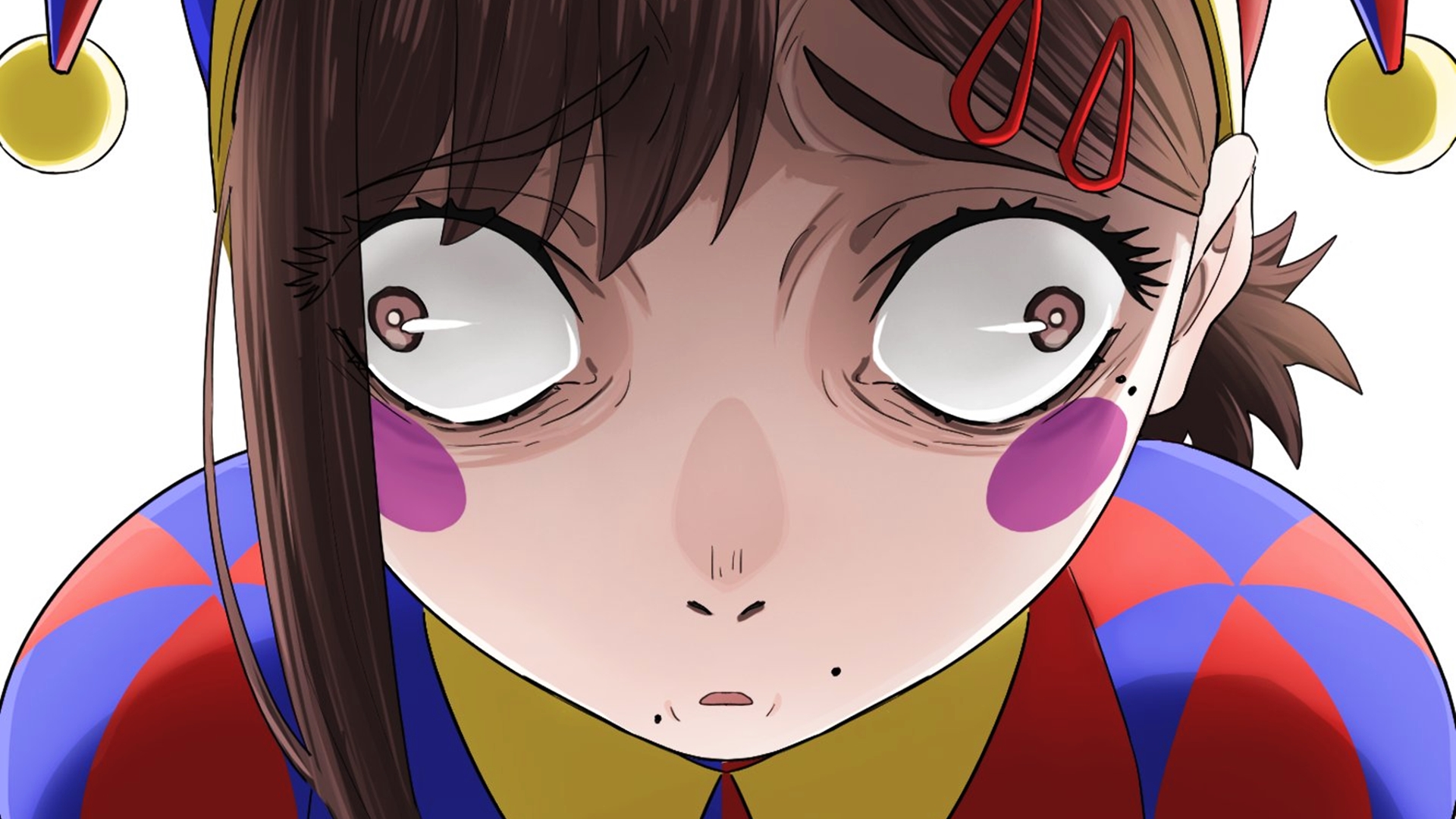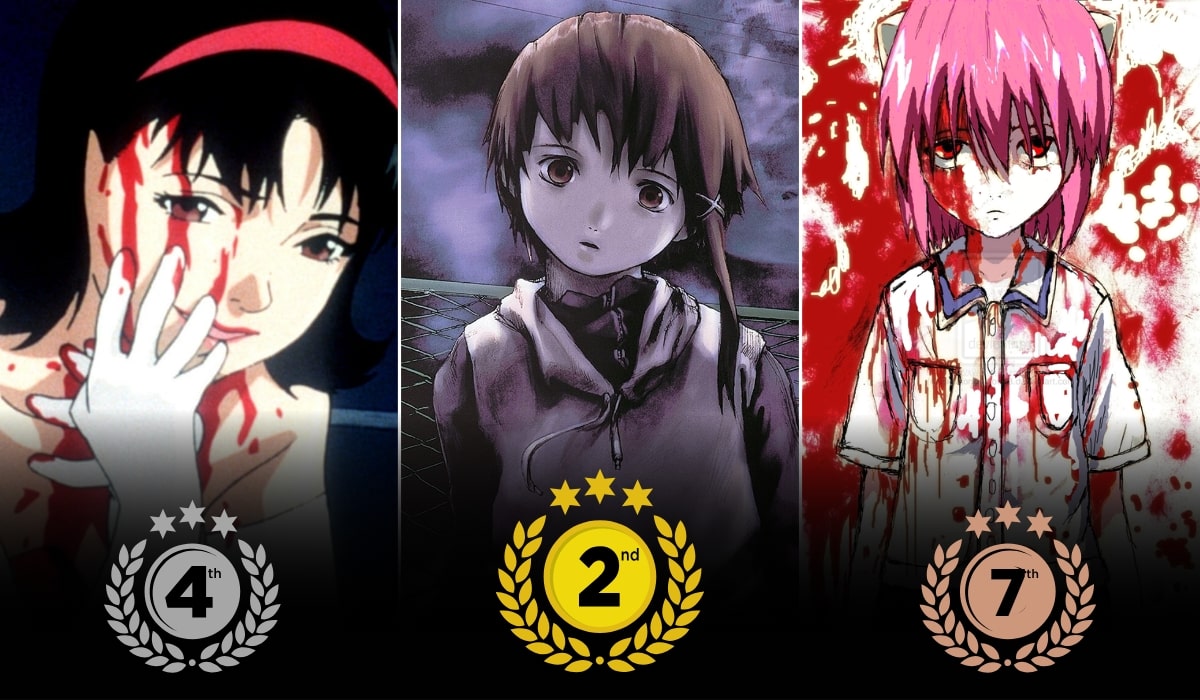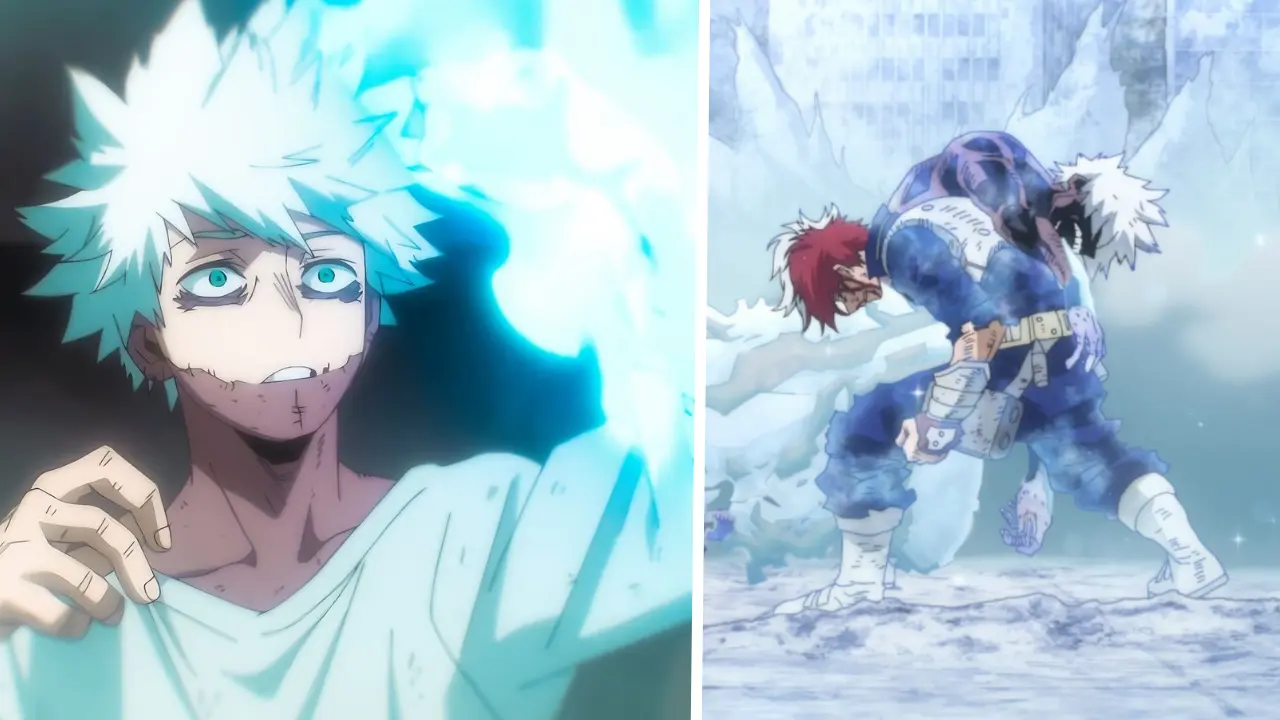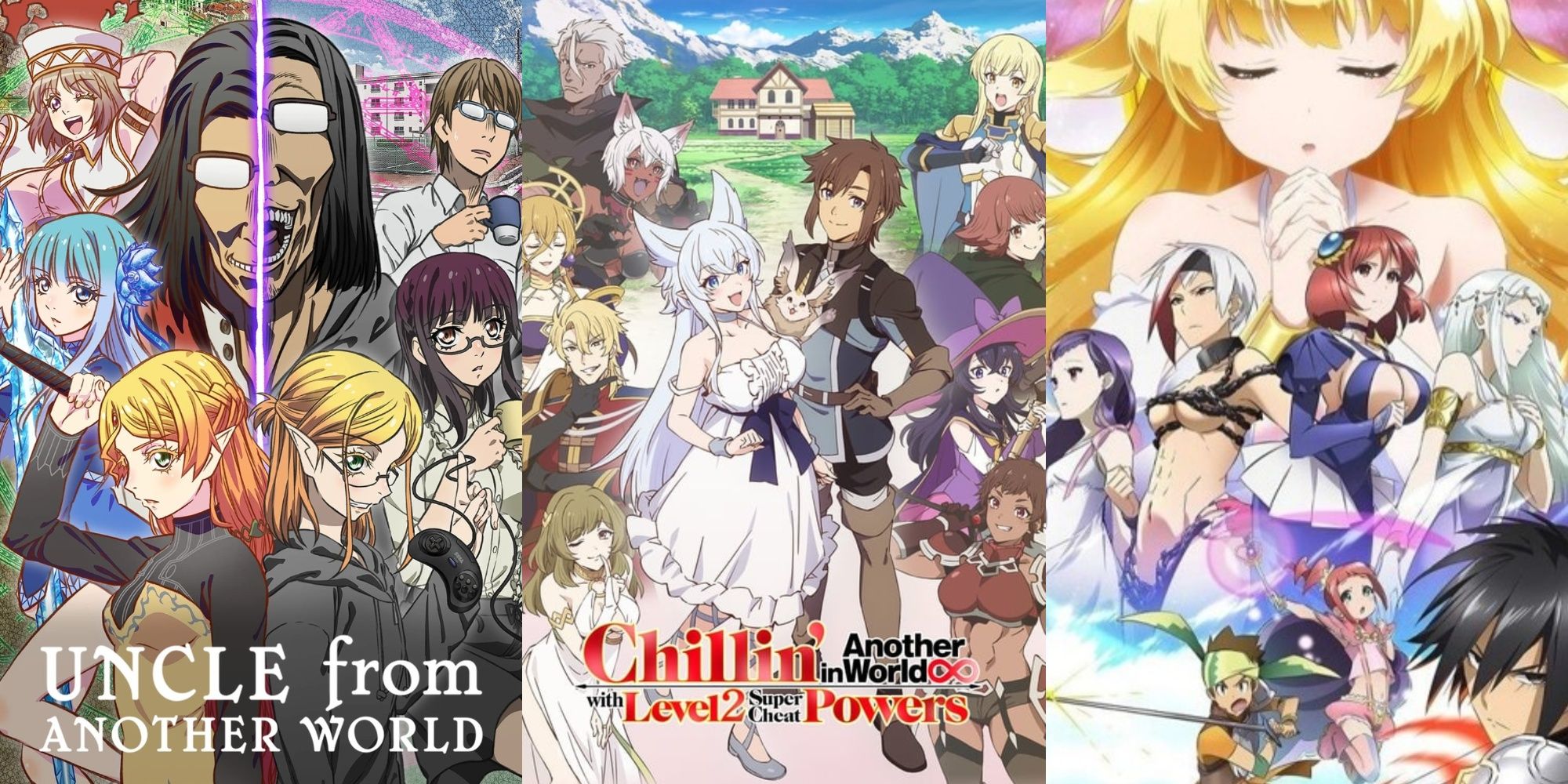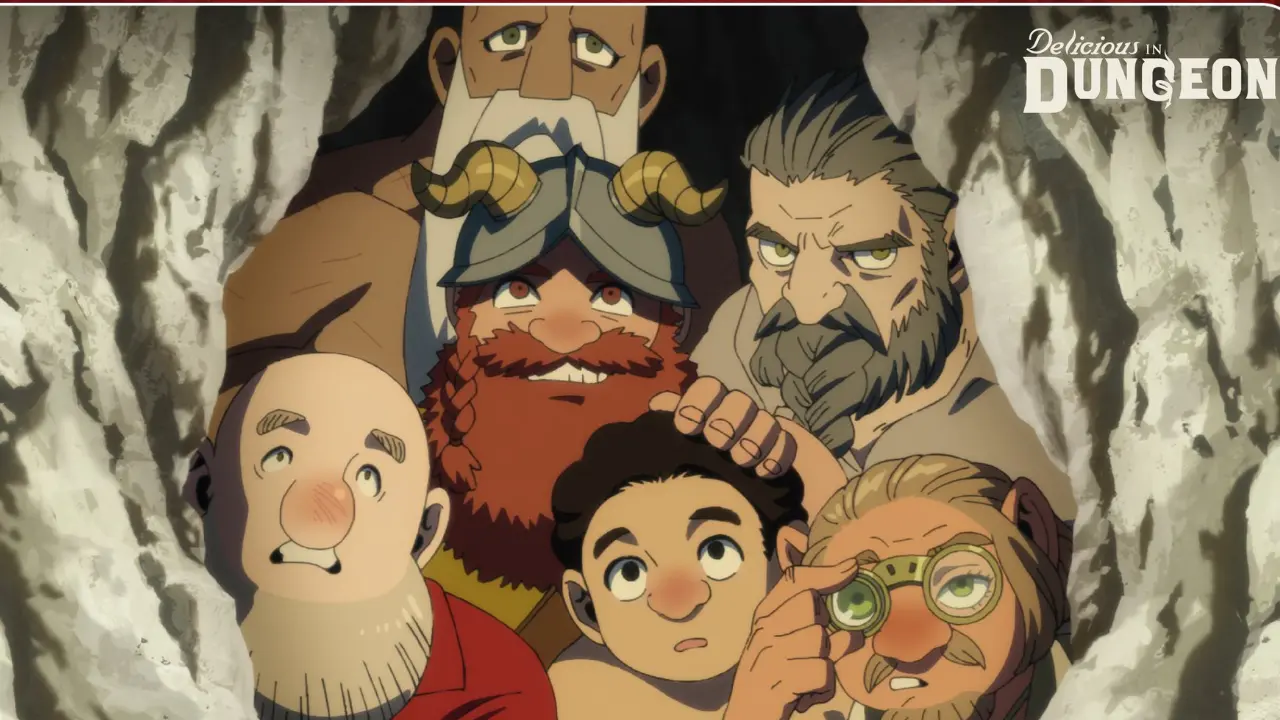Articles and Lists
Neon Genesis Evangelion is a contradictory masterpiece
Advertisement
Hideaki Anno Neon Genesis Evangelion It's one of those rare franchises that has expanded beyond itself and become a cultural touchstone. Fans considered this one of, if not the greatest anime of all time. Even those who don't care about it or anime as a whole acknowledge that the series inspires an almost religious fervor among its admirers.
Its curious fascination has led to officially sanctioned manga, video games, and remakes, all of which may or may not be canon. Its original feature-length redux ending (The End of Evangelion) and the four-film reboot Evangelion Reconstruction – which followed the anime's narrative until it didn't – provided new material to further confuse viewers while delving even deeper into their hearts and souls.
However, none of this would exist without the original 26-episode anime, which aired in Japan from October 1995 to March 1996. Given the anime's five-month broadcast, few could have expected its lifespan to last more than 30 years. It has lost none of its edge over the decades, and has yet to be surpassed in terms of existential reach.
What does the Neon Genesis Evangelion even more intriguing is that it started like many other mecha anime started, establishing a sense of security for its audience. However, it wouldn't be long before viewers realized that they were on shaky ground and were about to embark on the ride of a lifetime.
Neon Genesis Evangelion Was More Than Just Another Mecha Anime
The anime was more interested in Shinji Ikari than giant robots and monsters

Does Neon Genesis Evangelion hold up?
Neon Genesis Evangelion is a classic of Japanese animation, but some of its more controversial aspects have only gotten worse over time.
Neon Genesis Evangelion The series kicked off with the masterfully animated and detailed Episode 1, “Angel Attack.” The year is 2015. Screeching aphids make a ruckus in the natural world, and birds land on disused tanks before flying off to their next perch. Everything is in place to welcome the anime’s protagonist: 15-year-old Shinji Ikari. But before audiences can truly meet him and what will become his terrifying journey, a giant monster attacks Tokyo-3.
The mysterious entity was an angel: a hulking, large humanoid creature with broad shoulders and cartoonishly wide arms that extended past its knees. Later, the Angels pushed the boundaries of good taste even further or abandoned rationality altogether. But for now, this angel, Sachiel, was a fairly standard giant monster by anime standards. It was also the first to appear in 15 years.
The last meeting of the Angels resulted in the Second Impact: a cataclysmic event in which most of humanity and the world was eradicated. These were details that slowly came to light over the course of the anime, either in large doses of densely naive exposition or in more elegant and subtle ways. Sachiel's presence foretold the arrival of other Angels, whose true goals and purposes became both clearer and more confusing as they Neon Genesis Evangelion it happened.
On the other hand, Shinji was introduced in slightly more relatable terms. Shinji is the son of Gendo Ikari, commander of the anti-Angel agency NERV. The paramilitary organization developed the Eva Program, which utilized massive battle suits piloted by inexperienced teenagers who were more likely to synchronize with the giant robots than adult pilots.
Shinji went to Tokyo-3 because he found out his father wanted to see him. It's their first reunion in a long time after his mother's death. Understandably, Shinji has mixed feelings about the whole thing. Of course, not everything was as it seemed.

10 Best Evangelion Characters, Ranked
One of the best anime ever made, Evangelion features a remarkable cast of characters – from Shinji to Misato and Kaworu.
Leaving aside paternal abandonment, Shinji's psychological state is, to say the least, delicate.. Between his mother's death during Second Impact, his father's indifference and disdain for him, and his own lack of social skills, Shinji is the type to revert to fetal curvature when faced with even the slightest chance of confrontation. His caretaker, Misato Katsuragi, has compared his behavior to the Hedgehog's Dilemma. Like a hedgehog, Shinji would rather push everyone away from them than be a proactive member of their own lives, even if they craved affection. They did so out of fear of rejection and pain.
The same metaphor could be used to describe almost every character in Neon Genesis Evangelion. One of the series' main concerns was the difficult balance between the desire for sincere intimacy and the use of abrasive defense mechanisms to avoid vulnerability. In the more immediate terms of Shinji's well-being, it's not hard to see how the potentially world-ending circumstances of the Angels' presence exacerbated his problems.
Meanwhile, the Angels were an abject, externally manifested terror that stood in stark contrast to Shinji's palpable reality. The Angels were intelligent and never too picky when it came to their deeper meanings and symbolism. In a genre-free story, it would be the mundane things in life, like arguing with a loved one, losing your job, and dealing with bills. But through Neon Genesis Evangelion lens of the giant robot anime, the Angels were a literal battering ram that pushed Shinji to the limit. His destructive nature reached its peak in the last few episodes of the anime, which is where things really went wrong.
Understandably, the anime's original ending was controversial. The ending was basically a two-part clip show that reflected on the very nature of anime's inherently escapist existence. Still, Neon Genesis Evangelion The finale was also one of the bravest examples of popular media refusing to back down from its ambitions and themes – even if it meant alienating its audience.
Neon Genesis Evangelion characters deconstructed and overcame their archetypes
By playing with familiar clichés, the anime defied viewers' expectations.

Evangelion’s Adorable Rei, Asuka, and Mari Plush Plugsuits Will Be Released Worldwide
Good Smile Company's new Rei, Asuka, and Mari plushies from Neon Genesis Evangelion will debut not only in Japan, but also for international fans.
Neon Genesis EvangelionThe greatest strength of is its colorful cast of characters. The first new character Shinji met in the anime was Misato. She was the Director of Operations at NERV and Shinji's legal guardian. Her initial duties included convincing Shinji to jump into Eva-01, but over time, she came to genuinely care for him.
Other characters include Rei Ayanami, who was introduced after she resigned herself to piloting an Eva, despite the toll it took on her mind and body. Covered in bandages in her early scenes, Rei was soft-spoken but willing to push herself even further if it meant stopping the Angels' advance.
Rei's true reasons and origins were only clarified through later supplementary material, such as The End of Evangelion. Her main purpose in the original anime, however, was always clear. She was to show extreme devotion to the NERV cause, with little regard for her own well-being. Could Shinji end up as Rei, and would he want to? And speaking of which, what did Rei want?
There was also the red-haired Asuka Langley Soryu, a German-born Eva pilot who, in contrast to Rei and Shinji, was confident, combat-savvy, and seemingly well-adjusted. Although Shinji's encounters with women were often fraught with sexual subtext, it was with Asuka that he found the most immediate potential for a relationship. However, neither of them could explicitly state their wants and needs. It was also in these frictions caused by puberty that Shinji's deficiencies fully appeared.
Shinji's interactions with women are just not the kind you would expect from a 15-year-old boy. His behavior was similar to that perpetuated by many shōnen anime, both then and now., which prioritized its male protagonists but disregarded revealing anything beyond their most primitive and base impulses. At best, Shinji was comically awkward or clumsy around the women in his life. But at worst, he was hostile and toxic, both intentionally and otherwise.
This paradox made Shinji a fascinating object of scrutiny. He was a complicated individual who didn’t simply accept his duties as a potential world savior because he still operated within the well-worn narrative confines of an anime character made for a specific audience. Shinji clearly needed simple things like love and friends, but piloting a robot to save the world took priority.
In short, Shinji was a realistically troubled teenager who was forced into the heightened world of a giant robot anime. At some point, Neon Genesis Evangelion the truisms seem genuine only because they are perpetuated over and over by other anime and have less to do with the behavior of real teenagers in the real world.
Shinji Ikari was just one of the strange paradoxes of Neon Genesis Evangelion
The anime refused to give easy answers about Shinji Ikari and the story

10 Most Unlikely Evangelion Characters, Ranked
Neon Genesis Evangelion characters like Rei Ayanami and Gendo Ikari have polarizing personalities and are disliked by the fandom for valid reasons.
Despite being unable to fulfill the role that was forced upon him, Shinji was the main character. The audience was hooked on him through thick and thin as he tried and failed to make sense of his life. The anime was filled with many of these thematic contradictions, such as the abstract meanings of the Angel versus the concrete problems of Shinji's teenage life, or the typical anime hero chosen versus the reality of a child being forced into others' ideas of greatness.
Neon Genesis Evangelion challenged the audience to disagree with the characters' actions or even accept the logic of their premise, but consider their gender, art form, artistic purpose, and what they might want from life. As the angels' attacks became more frequent and took a toll on his body and soul, Shinji's story—which seemed stubbornly stuck as an annoying character—opened up to new dimensions and justified his purpose for being.
Despite each episode being less than half an hour long, much of the anime's overall runtime was spent in downtime between battles. For a series with incredible mecha and kaiju designs, as well as interesting biotech details, Neon Genesis Evangelion has very little action. The anime was less about the rock-'em-sock-'em spectacle of giant robot anime, and more about the realistic consequences of being thrown into grandiose circumstances where one is forced to kill.
Shinji was pushed beyond the limits of what a human being (let alone a teenager) could or should endure. The number of fights gradually decreased until there were none at the end of the anime. This wasn't a flaw, but a deliberate narrative choice that paid off in one of the strangest anime endings ever made.
Neon Genesis Evangelion's original ending is one of the best series finales ever made
Episodes 25 and 26 aren't easy to digest, but they're less about the payoff and more about the artistic expression.

Evangelion Producer Says: “Eva’s Hideaki Anno Is Not Abusive”
Producer Kazumasa Narita defends Neon Genesis Evangelion creator Hideaki Anno from the abusive stereotypes he is often criticized for.
Ultimately, Neon Genesis Evangelion it was about connecting with others and transcending personal barriers to create a more fluid existence between oneself and the world. Shinji's purpose was expanded in the end, drawing the disparate extremes of the fantastic and the real toward a unified whole.
A major plot point revealed NERV and SEELE's endgame, which was literalized as Third Impact. However, Third Impact was not a typical conspiracy to end the world. On the contrary, it was the demolition and reconstruction of Shinji's soul. Everything the anime had shown up until then was reinterpreted and recontextualized by one of the most ambitious endings in the history of television.
Neon Genesis Evangelion artistic integrity rested on its empty ending. Reduced to its core components, which were then reflected upon and exposed in frankly alarming terms, episodes 25 and 26 (titled “Do You Love Me?” and “Take Care of Yourself,” respectively) made up for the fact that Shinji wasn’t always the most compelling person to spend 26 episodes with.
This was done by literally deconstructing him as a character and a person. Instead of epic battles between Evas and Angels, the final two episodes of the anime featured the entire cast interrogating Shinji and making him realize things about himself. This controversial ending was essential to the story being told. Although the ending was made in part as a workaround for Gainax's financial mismanagement, It is wrong to consider it a pretentious last-minute measure.
The intention of the ending was clear and it was obvious that Anno always wanted to end his anime with Shinji's metaphorical death and rebirth through Instrumentality. All the signs were there, and the anime's use of familiar genre tropes built toward a final confrontation of the self, a confrontation between creator and audience, and a confrontation between expectation and execution.
For the public that enters Neon Genesis Evangelion for the first time, it is best to ignore all the supplementary information for now. They should watch the anime with an open mind and save The end of Evangelion, the Evangelion Reconstruction movies and detailed fan theories for later. Newcomers will likely find many problems with the series or find the characters unlikable. But if they are willing to engage with the material, Neon Genesis Evangelion will give them a gift that few anime, much less hugely successful franchises, offer: something to really think about.
Neon Genesis Evangelion is now streaming on Netflix.

Neon Genesis Evangelion
A teenager is recruited by his father as a member of an elite pilot team.
- Release date
- October 4, 1995
- Cast
- Megumi Ogata, Kotono Mitsuishi, Megumi Hayashibara
- Seasons
- 1 season
- Studio
- Gainax, Tatsunoko
- The Creator
- Hideaki Anno, Masayuki, Kazuya Tsurumaki
- Producer
- Yutaka Sugiyama, Joseph Chou
- Production company
- Gainax, Nihon Ad Systems (NAS), TV Tokyo, Tatsunoko Production
- Number of episodes
- 26 episodes
- Neon Genesis Evangelion is a challenge worth investing time in.
- Fantastic animation showcases some of the best fight sequences in anime
- The ending refuses to please the audience and is therefore much more emotionally intense.
- Shinji Ikari is not a very attractive lead role and often hurts the ears with his screams.
- Female characters are often reduced to what they can provide Shinji Ikari, versus his own specific set of wants and needs.
You may also like
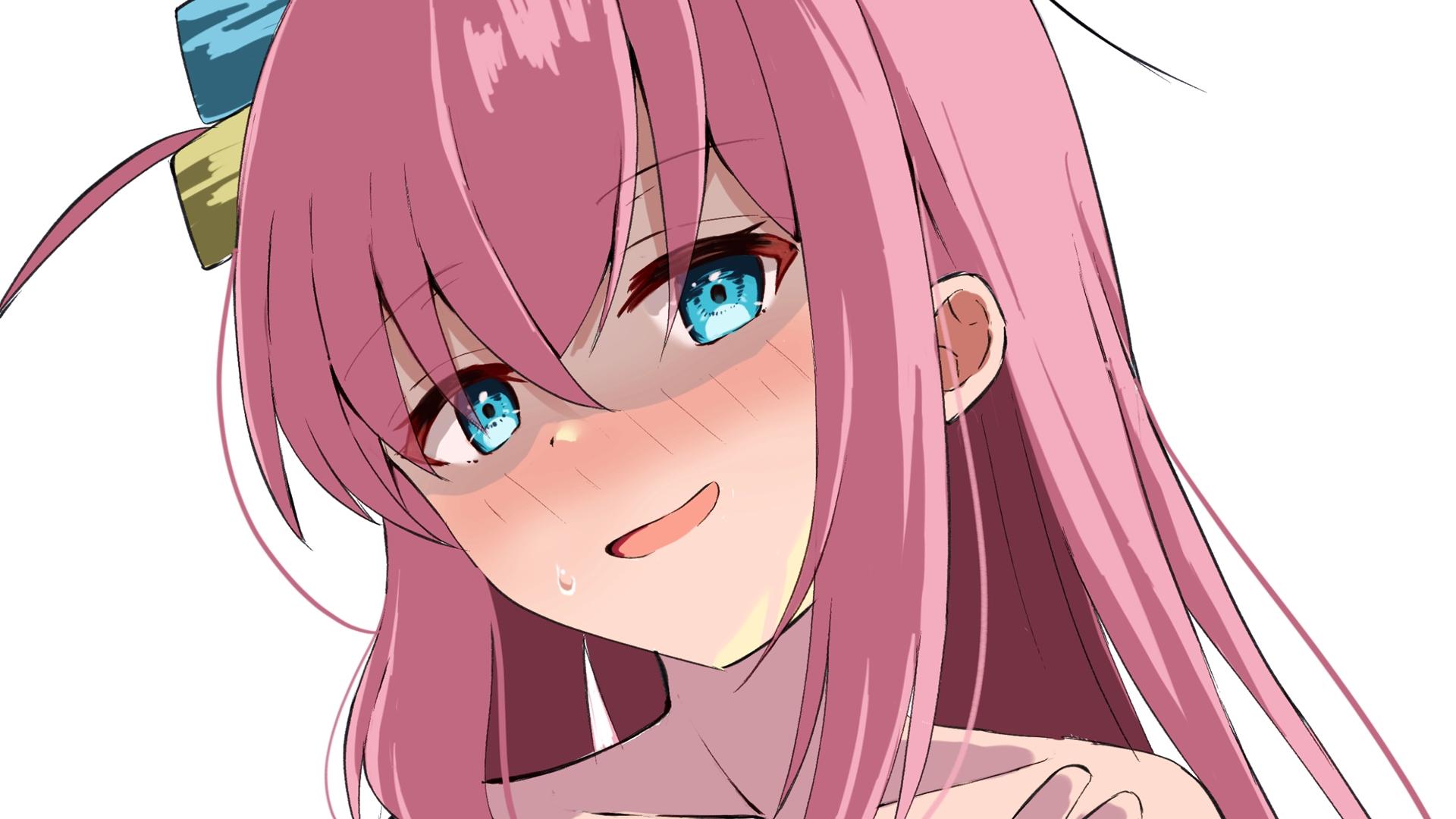
The Japanese believe that Bocchi is a smoker
In Japanese comment forums, there is a strong tendency towards the idea that the protagonist of Bocchi the Rock!, Hitori Gotou, is a smoker.
Keep Reading
